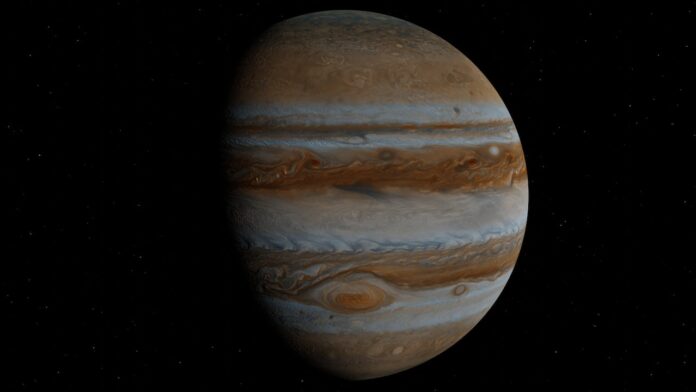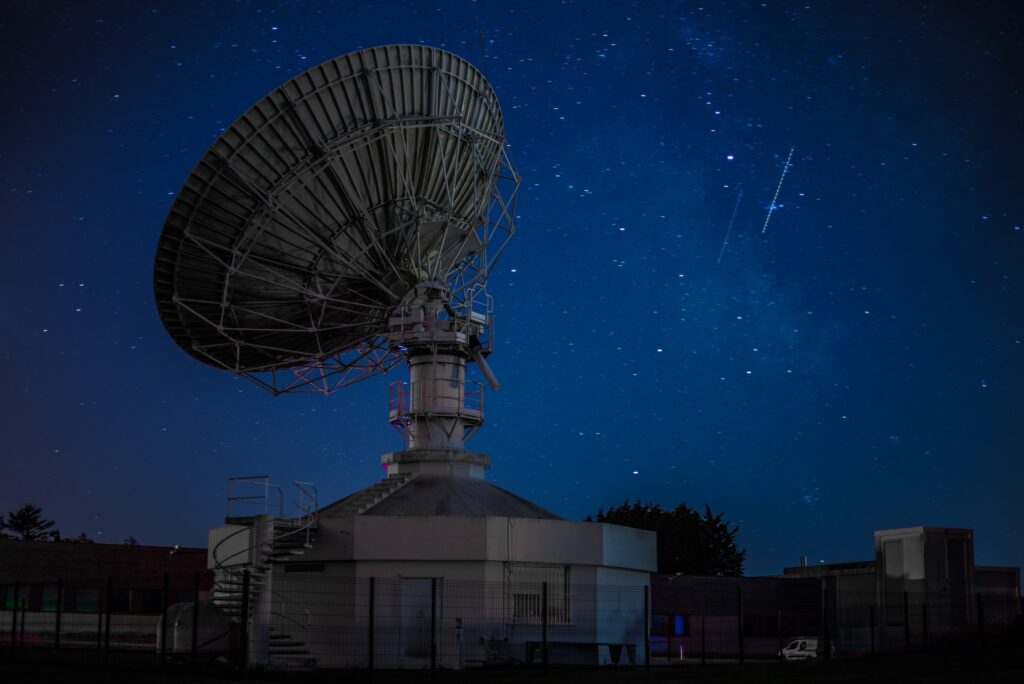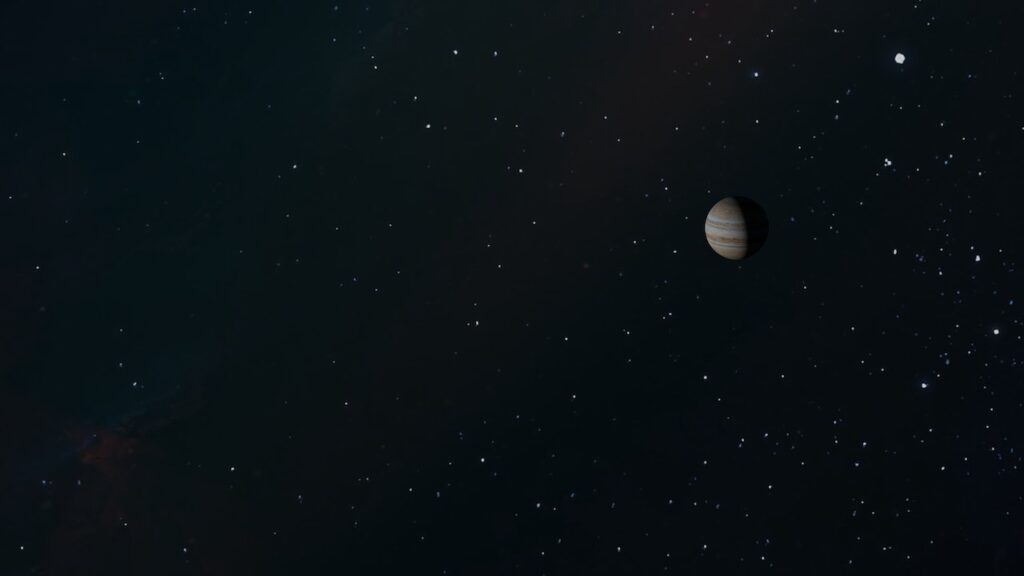
Imagine a world where the largest planet in our solar system, Jupiter, suddenly vanished into the cosmic abyss. Jupiter, with its grandiose swirling storms and immense gravitational pull, has long fascinated astronomers and space enthusiasts alike.
In this extensive article, we’ll embark on an cosmic journey to explore the intriguing question: What would happen if Jupiter disappeared?
As we delve into this hypothetical scenario, we’ll uncover the profound and far-reaching impacts it would have on our solar system, from planetary orbits to space exploration, the search for extraterrestrial life, and even the implications for humanity.
Related:
Jupiter’s Gravitational Influence

Jupiter is often referred to as the “guardian” of our solar system due to its staggering mass, which accounts for approximately 71% of the total mass of all the planets combined (318x mass of Earth and 2.5 times that of all the other planets in the Solar System combined).
Its gravitational pull plays an absolutely crucial role in maintaining the delicate stability of our celestial neighborhood. Without Jupiter’s monumental presence, the dynamics of the solar system would undergo a radical transformation of truly cosmic proportions.
Related: What would happen if gravity disappears?
Altered Planetary Orbits
One of the most immediate and profoundly significant effects of Jupiter’s sudden disappearance would be the wholesale alteration of planetary orbits throughout the solar system. Jupiter’s gravitational influence acts as a stabilizing force, preventing inner planets like Earth from wandering into eccentric and potentially perilous paths.
The sudden absence of Jupiter could lead to increased gravitational interactions among the remaining planets, causing unpredictable perturbations in their orbits. Over time, this could potentially result in orbital chaos, affecting not only the climates of various planets but also the very habitability of certain celestial bodies.
Recommendation: If you'd like to learn more about universe (much more), we would recommend following amazing book by Neil deGrasse Tyson: "Cosmic Queries: "StarTalk's Guide to Who We Are, How We Got Here, and Where We're Going"
The Impact on Earth

Jupiter disappearing would have significant impact on Earth.
Let’s see in more details what would those effect be.
Climate and Tidal Effects
Earth, our home planet, would experience a series of noticeable changes if Jupiter were to suddenly vanish from our cosmic neighborhood. The altered gravitational forces within our solar system would inevitably disrupt the equilibrium that currently governs ocean tides.
While the Moon predominantly influences our tides, Jupiter’s absence would still lead to variations in tidal patterns, potentially affecting coastal ecosystems and maritime navigation.
Related: What would happen if moon exploded?
Meteoroid Threat

Jupiter, as the solar system’s cosmic giant, plays a crucial role in protecting Earth from potentially catastrophic cosmic collisions. The gas giant acts as a gravitational “vacuum cleaner,” capturing or deflecting many incoming comets and asteroids that might otherwise collide with our planet.
Without Jupiter’s protective presence, Earth would become significantly more vulnerable to these space rocks. In this new cosmic landscape, scientists and space agencies would need to intensify their efforts to track and mitigate potential impact threats, emphasizing the paramount importance of space observation and exploration.
Implications for Space Exploration
Space exploration would face monumental challenges without Jupiter’s gravitational assistance. Many spacecrafts, including the iconic Voyager missions, utilized Jupiter’s gravity to accelerate and redirect their trajectories toward their intended destinations in the outer reaches of our solar system.
The loss of this gravitational boost would necessitate more substantial fuel requirements and significantly longer travel times for future space missions. The feasibility of certain deep-space missions might be severely compromised.
Additionally, Jupiter has long been a prime target for planetary exploration, with spacecraft like Juno providing invaluable insights into the gas giant’s composition and atmospheric dynamics.
The disappearance of Jupiter would force space agencies and scientists to reevaluate their mission priorities and target selection. Researchers and explorers might need to redirect their focus toward other celestial bodies, such as Saturn, or the enigmatic ice giants Uranus and Neptune, in the absence of Jupiter’s magnetic allure.
Implications for Extraterrestrial Life

The search for extraterrestrial life often centers on moons like Europa and Ganymede (bigger than Mercury and Pluto), believed to harbor subsurface oceans that could potentially nurture and sustain life forms.
Jupiter’s powerful gravitational tug generates tidal heating in these moons, maintaining their liquid interiors. If Jupiter were to disappear, these moons might cool down, potentially diminishing their habitability and altering the prospects of discovering life beyond Earth.
In such a scenario, scientists would need to reassess the feasibility and potential target locations for future astrobiological exploration.
Implications for Humanity
Jupiter has not only been a cosmic neighbor but also a source of inspiration and wonder for humanity. Its disappearance would challenge our understanding of the celestial order and our place in the cosmos. We would need to adapt to this new cosmic reality, revisiting our notions of what it means to be inhabitants of a dynamic and ever-changing universe.
The absence of Jupiter would stimulate unprecedented scientific inquiry and innovation. Scientists and researchers would be driven to explore the repercussions of such a colossal cosmic event, advancing our understanding of planetary dynamics and the intricate web of gravitational interactions that shape our solar system.
Technological Challenges and Innovations
The sudden disappearance of Jupiter would present humanity with unprecedented technological challenges. As we’ve relied on Jupiter’s gravitational assistance for numerous space missions, engineers and scientists would need to devise new propulsion systems and mission trajectories. This necessity for innovation could lead to breakthroughs in propulsion technologies, potentially revolutionizing the future of space exploration.
On top of that Jupiter’s vanishing act would ignite a renewed curiosity about our solar system and the broader universe. Astronomers and researchers would turn their telescopes toward the void left by Jupiter, seeking answers to the profound questions raised by its disappearance.
Conclusion

The disappearance of Jupiter is a captivating and mind-boggling scenario that prompts us to contemplate the profound interconnectedness of celestial bodies within our solar system. While such an event remains firmly entrenched in the realm of science fiction and thought experiments, the exploration of its potential consequences offers invaluable insights into the pivotal role Jupiter plays in maintaining the stability and order of our cosmic neighborhood.
From altered planetary orbits and their climate impacts to the search for extraterrestrial life and the implications for humanity itself, Jupiter’s hypothetical vanishing act would send cosmic ripples throughout our solar system, reshaping the way we perceive, understand, and explore the vast and enigmatic cosmos that surrounds us.
Note: If you’re interested in similar articles, on topic of “What would happen if”, you can check:
- What would happen if Moon disappeared?
- What would happen if Sun exploded?
- What Would Happen if Yellowstone Supervolcano Erupted?
- What would happen if we stopped fishing?
- What would happen if water disappeared on Earth?
- What would happen if lying never existed?
- What would happen if everyone was naked?
- What would happen if gravity suddenly disappeared?
- What would happen if everyone stopped having children?
- What would happen if mosquitoes went extinct?
- …and many more.



























